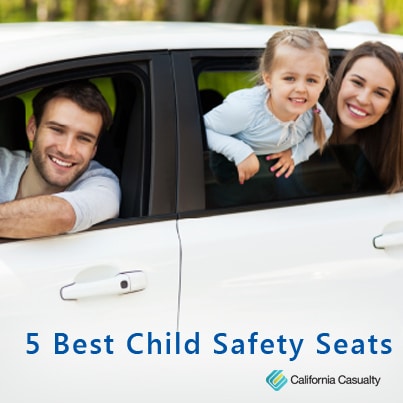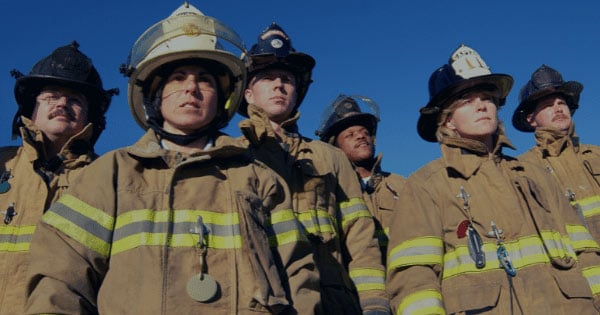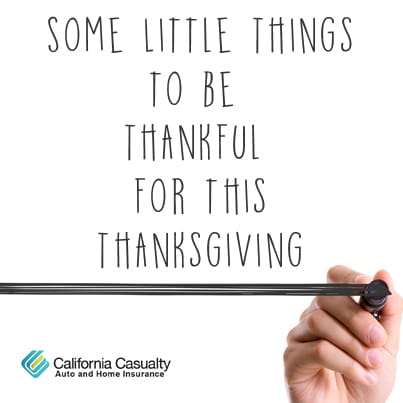Parents: 5 Best Child Safety Seats
 Child safety seats save lives. Protecting infants while riding in a car isn’t just a responsibility, it’s the law. Every state in the nation requires children up to three years of age to be secured in car seats, with booster seats required for most children up to 10 years old. Keep in mind that the risk of injury in a crash is reduced 45 percent if children are properly restrained. But how do you know which do the best job of cocooning your most precious cargo?
Child safety seats save lives. Protecting infants while riding in a car isn’t just a responsibility, it’s the law. Every state in the nation requires children up to three years of age to be secured in car seats, with booster seats required for most children up to 10 years old. Keep in mind that the risk of injury in a crash is reduced 45 percent if children are properly restrained. But how do you know which do the best job of cocooning your most precious cargo?
Consumer Reports has identified the five best car seats for your baby. All five performed well in new front impact tests that simulated a 35 mile per hour crash and scored well for ease-of-use. The new testing procedure is said to provide parents with the information needed to more easily compare the safety of seats designated for infants.
The recommended car seats are:
- Chicco KeyFit and KeyFit 30
- Combi Shuttle
- Cybex Aton 2
- Safety 1st onBoard 35 Air
- UPPAbaby Mesa
Since the cost of these seats range from $150-to-$300, Consumer Reports lists others that cost slightly less but still perform well overall:
- Safety 1st Comfy Carry Elite Plus
- Graco SnugRide 30 Classic Connect
The Insurance Institute for Highway Safety (IIHS) also does extensive testing for their booster seat best picks for parents and grandparents. However, anyone who used the 2014 IIHS ratings should know that two of their best booster seat recommendations are now not recommended. The IIHS warns that initial testing on the Eddie Bauer Deluxe Highback 65 and the Safety 1st Summit 65 did not detect issues with the positioning of the shoulder belt. You can see their list here.
When you get the proper car seat, there are some other important facts to keep in mind:
- Nine out of 10 child car seats were found to be installed incorrectly
- Nearly half of all child car seats are not compatible with motor vehicle seats
- Many parents move their children out of booster seats too early
- Families continue to use old unsafe seats or ones that have been recalled
When installing a car safety seat you should:
- Always do so in the back seat, using the center most position
- Make sure to use the correct seat for your child’s age and size
- Keep infants in rear facing seats
- Secure the seat so it moves no more than one inch from side to side
Just as you want to do everything you can to protect your children, make sure you also have the best auto insurance protection with the discounts you deserve. Contact a California Casualty advisor today for a no- hassle policy review and comparison at 1.800.800.9410 or at www.calcas.com.
Sources for this article:
https://www.consumerreports.org/cro/news/2014/04/5-best-car-seats-for-your-baby/index.htm
https://www.ghsa.org/html/stateinfo/laws/childsafety_laws.html
https://www.iihs.org/iihs/ratings/child-boosters/best-bets
https://www.safercar.gov/parents/CarSeats/Car-Seat-Safety.htm
https://www.safetyandhealthmagazine.com/articles/12967-researcher-42-of-child-car-seats-not-compatible-with-vehicle-seats
Keeping the Holidays Jolly: Nurses
There is nothing more heartwarming than spending the holidays surrounded by friends and family sharing wonderful meals, presents and stories. But for many families, their loved one is away working in a hospital or care facility meeting the needs of others and trying to spread a little holiday cheer. As we celebrate the holidays, let’s not forget the men and women who sacrifice to provide hope and healing for so many. While most businesses might be closed for Christmas and New Year’s Day, hospitals and care facilities aren’t; sickness, aging and accidental injuries don’t take a day off, and neither do those charged with providing care.
I was amazed by the loving spirit I observed during the year I worked at our local hospital, but never more impressed than when the holidays came. The corridors echoed with ho-ho-hos and many of the staff adorned themselves with ornaments and Santa hats. While it can be tough to be away from the family during a major holiday, here are some ideas for nurses and other care providers that can make the day better:
- Be festive at work – it will raise your spirits and those around you, including patients
- Play holiday music
- Share a holiday potluck or meal
- Take heart that you are helping those who must be in the facility to smile and know someone cares
- Be thankful that you get to go home to your family and friends when your shift ends
- Celebrate the holiday with our friends or family on a different day
The rest of us can make those holiday shifts a little brighter for care givers and their patients:
- Bring some baked goods for the staff
- Deliver some thank you cards
- Find ways to volunteer at hospitals and care facilities
- Put a note on the Thank-a-Nurse Facebook page
Sources for this article:
https://www.nursecore.com/2013/12/nursing-healthcare-holiday-shift/
https://www.workingnurse.com/articles/Working-the-Holiday-Shift
https://www.facebook.com/Thank-a-Nurse-363285516802/timeline

First Responder Mental Health: Watch for the Warning Signs by Jeff Bryan, Firefighter/EMT-1
By Jeff Bryan, Firefighter/EMT-1
First responders are special people. Most don’t think about money or glory; rather they are motivated by the reward of providing safety and relief, doing all they can to help others.
While some might consider first responders superheroes, just like the rest of humanity they have a very real vulnerability: mental health. Few go into the profession thinking about how the job will affect them mentally. As a public servant who cares, I feel mental health should be held to the same standard as physical fitness.
Let’s face it, we all have triggers. Whether it’s daily stress or the horror of what first responders encounter at a fire, automobile crash or domestic violence, it affects us. We mostly click into survival mode, pushing the pain and gore into a corner of our conscious, reacting to the situation with as little emotion as possible. Seeing repetitive tragedies is hard on anyone and it takes a toll. Those emotions can and do resurface and we can react in a couple of different ways. Some find positive ways to cope, others cope in self-destructive ways. I am urging all of us to be aware of “triggers” that warn someone is having trouble: they are quick to anger, suffer depression or exhibit self-destructive behavior like taking undue chances or turning to drugs or alcohol. We need to be aware that these are signs of post-traumatic stress. I thought nothing could bother me but I have since learned that no one is immune, but many will deny it. If we weren’t affected by all this, we would be narcissistic; but most first responders aren’t.
First responders are coping the only way they know how. They see and experience things that most others don’t. Here’s the problem; we must address the issue but most public servants are terrified to seek help. Why?
Many are fearful of persecution and losing employment. Those who admit they need help are often looked upon as mentally weak and “damaged.” While there has been a shift of thought in this area, too often admitting that the job is getting to them leads to castigation and forced retirement.
I have seen my fair share of tragedy and I am the first to admit it affected me. I was always happy-go-lucky, but the job has changed me. I realized I couldn’t do this on my own so I decided to get help. I have been seeing a psychotherapist for ten years. At first, I was very embarrassed. Now, I want to help others get the help they might need too. Three years ago, I invited a mental health professional to talk to our staff members. The turnout was not that great and I was hurt. I was told, “Jeff, it went well and we will come back. We touched a few and it made a difference.”
I learned help can come in many forms whether it be a support group, a church pastor, a trusted friend, your partner or someone on your crew. It’s time we put this on the table and say enough is enough, otherwise more public servants will just walk away from the job, self-medicate or commit suicide. Personally, every suicide I read about hurts me. I lost a cousin to suicide. He was a very prominent surgeon, he was my age, and it devastated my family.
I will offer one other piece of advice: use exercise and hobbies to deal with stress. Don’t let your job define your life. I find climbing is the one sport that lets my brain rest. I can only think about the rock or ice, the route, and the next move; my mind is free of everyday noise. I also actively pursue therapy and I talk with my wife. Many I know have used Eye Movement Desensitizing Reprocessing (EMDR) to treat PTSD. Whatever works for you – bowling, bike riding or hitting the gym – get going and help your mind through physical activity.
I hope writing this article will make more of us stop and pay attention. Know the warning signs: loss of interest in activities, self-medication, poor hygiene, isolation and depression or anger. Other signs are a change in one’s empathy and compassion. Those of us working as first responders need to notice those on our crew who might complain when the tones drop if they suffer from night terrors or even cry; it’s a sign our brother or sister needs help. We need to show empathy and compassion to each other and extend a hand. Let’s also not forget our retired or disabled public servants. Call and invite them to the station for a meal. Make time for them. Too many of our brothers and sisters are getting divorced and committing suicide. Let’s change the stigma and turn around the statistics.
Health and wellness must include taking care of our public servants’ mental health. It’s a concern for all of us, no one can do it all themselves. We can listen and offer advice, but if we try to become everyone’s problem solver we end being affected ourselves. We need to change the culture and make professional help available. Our leaders sometimes forget about life in the trenches. I don’t blame them; they most likely have dealt with the same issues but now they fight different battles. Their concerns are budgets, staffing, equipment upgrades, etc.
Slowly, more of the public safety leadership is addressing the issue of PTSD and the mental health of their crews. I urge more of those leaders to make a commitment to mental health. Please lobby to bring this issue to the forefront before you read about one of your people doing something rash. A proactive mental health program is also needed to reduce PTSD and worker burnout.
Jeff Bryan, Firefighter/EMT-I
Jeff Bryan is a firefighter who doesn’t let adversity keep him down. Jeff returned to full time work in March 2015, just slightly less than a year after his right leg was amputated below the knee. Jeff, who is a firefighter and EMT Intermediate with the Ute Mountain Fire Department in southwest Colorado, refused to let the amputation keep him down. He was released from the hospital on his 50th birthday. He says there were two ways to go: give up and feel sorry for himself or push forward and beat it – he chose to move beyond and conquer it.
As soon as he was able, he started bicycling, ice climbing, paddle boarding, swimming and yoga. As far as anyone can determine, Jeff is the only firefighter in Colorado to return to fulltime active duty after a leg amputation. Jeff does not want to be known as the firefighter who lost a leg, but the guy who works hard to stay in shape and be the best EMT/firefighter he can.
Jeff provides insight and commentary on issues facing firefighters, EMTs and other first responders.
Some Little Things to be Thankful For This Thanksgiving
Thanksgiving is the time we should pause and be thankful for so many things. While most of think of our jobs, families and our health, we might forget about other things in our lives we might want to give “thankful” shout-outs for:
- Netflix and Hulu for saving me from having to purchase a DVR and entertaining me on really boring weekends and nights
- Phone navigation apps that have helped me find the right route and places when traveling to a new city, but also led me onto the wrong direction of a one-way street
- Costco for all the industrial sized coffee (and dark chocolate pumpkin seed bark) to keep me amped up til next year
- This year’s college and professional football that is testing how well my blood pressure medicine is really working
- Gas prices under $2 a gallon (I filled up the other day for $24)
- The presidential race for a lot of laughs and occasional groans
- Lip balm
- Twitter for reducing everything to 140 characters and helping my ADHD
- For the companies and stores who won’t be open on Thanksgiving (and for the few who will be closed on Black Friday)
- Jimmy Fallon’s Friday thank you notes
- Drones for new perspectives on the world around us (and peeks into my neighbor’s yard)
- The Internet (specifically Facebook) for finding a way to capture so much of my valuable time
- Bruce Willis, Arnold Schwarzenegger and Sylvester Stallone for making old guys like me seem cool and relevant
What are you thankful for this year? We’d like to see. Have a little fun and share your off-the-wall appreciation with us.
One thing educators, law enforcement officers, firefighters and nurses can be thankful for is a company like California Casualty which offers auto and home insurance with exclusive benefits tailored to your profession. Learn what benefits you qualify for by calling one of our advisors today for a free policy comparison or review at 1.800.800.9410 or visit www.calcas.com.


